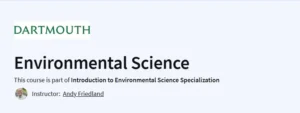What will you in the General Chemistry: Concept Development and Application Course
Develop a strong understanding of atomic and molecular theory.
Explore chemical bonding, thermodynamics, kinetics, and equilibrium.
Learn using a unique Concept Development Approach that starts from real-world observations.
Strengthen your scientific reasoning and problem-solving skills.
Apply chemical concepts to real-life and laboratory scenarios.
Program Overview
Module 1: Introduction to Concept Development Approach
Duration: ~30 minutes
Learn how this approach helps students understand complex concepts from foundational observations.
Module 2: Atomic Molecular Theory and Atomic Masses
Duration: ~2 hours
Study the origin of atomic theory and understand how atomic masses are calculated through experiments.
Module 3: Structure of the Atom and Electron Shells
Duration: ~1.5 hours
Dive into the structure of atoms and explore electron configurations and periodic trends.
Module 4: Orbitals and Electron Energies
Duration: ~1.5 hours
Understand the quantum nature of electrons and how orbitals define chemical behavior.
Module 5: Covalent Bonding and Molecular Structures
Duration: ~2 hours
Analyze how atoms form covalent bonds and learn to predict molecular shapes.
Module 6: Ionic and Metallic Bonding
Duration: ~1.5 hours
Differentiate between types of chemical bonds and their unique physical properties.
Module 7: Thermodynamics and Energy in Reactions
Duration: ~1.5 hours
Study exothermic and endothermic reactions and the flow of energy in chemical systems.
Module 8: Gases and the Kinetic Molecular Theory
Duration: ~2 hours
Explore gas laws and molecular motion to explain pressure, volume, and temperature relationships.
Module 9: Phase Changes and Equilibrium
Duration: ~2 hours
Understand how substances transition between phases and how equilibrium governs these processes.
Module 10: Reaction Rates and Kinetics
Duration: ~1.5 hours
Learn about the factors that influence how fast reactions occur and how to calculate rate laws.
Module 11: Chemical Equilibrium
Duration: ~2 hours
Analyze reversible reactions and how equilibrium is established and manipulated.
Module 12: Entropy and Free Energy
Duration: ~1.5 hours
Grasp the concepts of disorder and spontaneity in chemical systems through thermodynamic principles.
Get certificate
Job Outlook
Science Students: Build a strong foundation for advanced studies in chemistry, biology, or engineering.
Educators: Use an effective inductive method to teach high school or introductory college chemistry.
Healthcare & Lab Professionals: Refresh and reinforce essential chemical knowledge.
Test Takers (MCAT, GRE, etc.): Gain deep conceptual understanding to perform well in exams.
Specification: General Chemistry: Concept Development and Application
|





